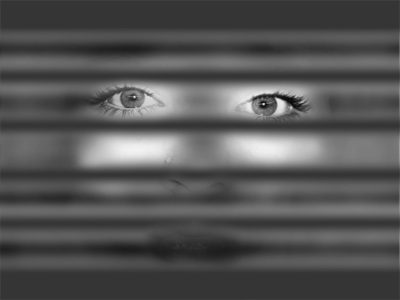IT’S THE QUESTION OF THE WEEK.
It comes from Kathy.
I’ll not use her last name. You’ll see why when you read her question. She wins a free book for her trouble.
How do I reconcile my liberal political beliefs with being a Christian? I do not believe in abortion, but am pretty liberal when it comes to the rest of the Democratic platform. I often hide my views because I do not want fellow Christians to belittle and chastise me. I cannot help what I believe. Do I just need to grow a backbone?
Yeah, probably.
You sound like you fit the Democratic stereotype in a model of stereotypes I’ve pieced together from the “Wizard of Oz.” (I live in Kansas. Hence the imagery.)
- Cowardly lion: Democrats…no backbone.
- Tin man: Republicans…no heart.
- Scarecrow: Tea Partiers…no brain.
I think that’s pretty much how the parties are widely perceived by their rivals—and sometimes by themselves as well.
I mentioned this in an earlier blog about how to unite our nation: Pointing politicians to the yellow brick road.
In answer to your question about how to reconcile your Democratic political beliefs with Christianity, how about these bullet points, which I’ve heard Christian Democrats offer from time to time.
- Christians used to be liberals in decades past, when churches built most of the hospitals and colleges in this country.
- The shift to conservative began when ministers like Jerry Falwell in the late 1970s started promoting their ideas about what a Christian should look like: zero tolerance on abortion and homosexuality; down with women’s rights; up with prayer in school…
- The Democratic Party is the one that, historically, looks after society’s helpless; they gave us Social Security and Medicare, for example.
- The Republican Party, historically, has fought against programs to help the helpless, saying it promotes Big Government and Government Waste…while, oddly, budgeting more for the military than even the military requests. Our military budget is higher than that of the next 16 countries combined. Government waste. And overkill.
- Conservatives are conservative because they have something to conserve—which explains why they want a powerful military to guard their goods. Instead of helping others, their focus is on keeping what they’ve got, while getting more. They help themselves—and tell others to do the same, as though all playing fields are level.
- Conservative Christians today often use abortion as a litmus test for voting, though the Bible never mentions it. Nor does it equate murder with abortion. In the Bible, murder applies to breathing souls.
- Liberal Christians, on the other hand, focus their energy on helping breathing souls in trouble; the Bible says a lot about that.
- Conservative Christians, who often complain about government intruding into their lives, try to create laws to force people to act the way they say good people should act—though even God doesn’t do that. He lets us make our own choices.
- Liberal Christians aren’t afraid of Big Government because they believe there are important jobs we can get done only when we all work together: public education, interstate highway system, national defense.
- Liberal Christians make no excuse for saying they believe that in any civilized nation today—and certainly in a Christian nation—everyone should have the right to healthcare whether they can afford it or not. Ditto college. Housing and food, too, for people unable to provide for themselves.
Those are a few reasons I believe your fellow liberal Christians might suggest as a way of enticing you out of the closet.
Thanks for the question.
I imagine my bullet points will stir up a little anxiety.
In which case I refer the readers to a more placid blog post. Here’s Buddy the Dog.


It’s refreshing to see someone point out that Christianity and liberal thought are not mutually exclusive.
Just one point I might disagree with though. You seem to indicate that supporting a government that takes care of the poor is more in line with Christ’s ideals. Actually, giving that job to the government rather than our personally taking responsibility for feeding the hungry seems to kind of skirt the issue, doesn’t it? Shouldn’t feeding the hungry and caring for those that can’t care for themselves be something we each do out of love rather than simply passing the responsibility off to government leaders?
Thanks Steve. I think I’d disagree with you on that point. In our generation, I think it was Reagan who launched the idea that churches should help the poor instead of putting that on the government.
My feeling is that poverty in American is so widespread and systemic–on a scale of concerns such as national defense, transportation, and education–that I think it needs a systemic fix. I think the entire country has to pull together in an orchestrated collaboration. Otherwise, we’re just picking at the problem…taking potshots at it.
I think poverty, and related matters such as healthcare, hunger, and homelessness are much more pressing matters than other issues that grab the headlines: abortion, gay marriage, and protecting assault rifles.